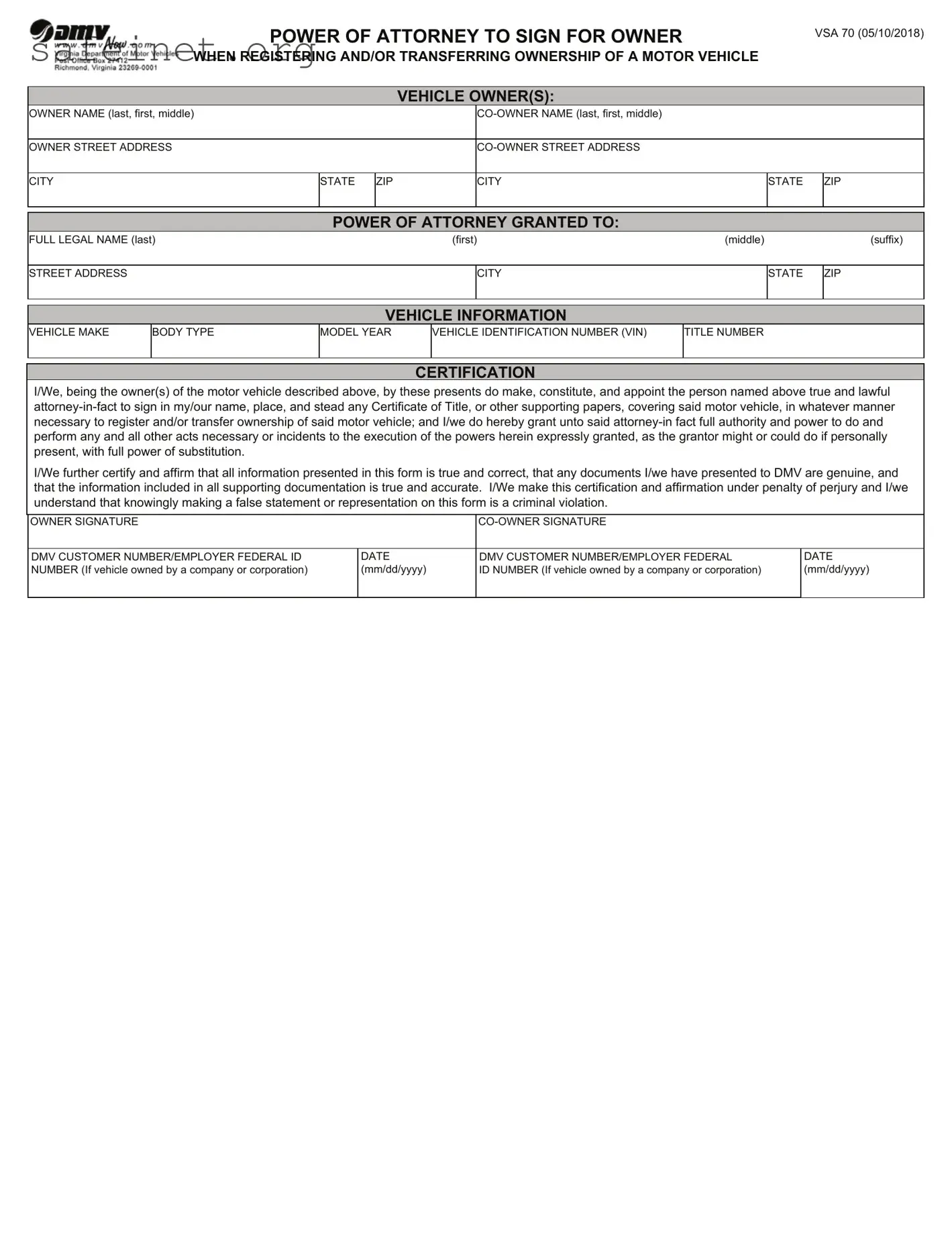What is the Vehicle POA VSA 70 form?
The Vehicle POA VSA 70 form is a legal document in the United States that allows you to designate someone else to act on your behalf in matters related to your vehicle. This may include tasks like transferring ownership, registering the vehicle, or handling other title-related activities. It's a useful tool when you can't be present to manage these important tasks yourself.
Who needs to fill out the Vehicle POA VSA 70 form?
This form is typically used by vehicle owners who wish to grant authority to another individual, known as the agent or attorney-in-fact. If you are unable to manage your vehicle's title changes or registration due to being out of state, incapacitated, or busy with other responsibilities, you may need this form. It can also be beneficial for those assisting elderly relatives or disabled individuals.
What information is required on the Vehicle POA VSA 70 form?
The form gathers essential information, including the vehicle owner's details (name, address), the agent's information, and specifics about the vehicle itself, such as the make, model, year, and Vehicle Identification Number (VIN). Additionally, you will need to specify the tasks that your designated agent is authorized to perform on your behalf.
How do I complete the Vehicle POA VSA 70 form?
To complete the form, start by filling in your personal information and then that of your designated agent. Clearly outline the scope of authority that you are granting. After all sections are filled out, ensure that you print and sign the document. It's advisable to keep a copy for your records before submitting it where necessary.
Does the Vehicle POA VSA 70 form need to be notarized?
While notarization is not always required for the Vehicle POA VSA 70 form in all states, it's a good practice to have it notarized. Notarization can provide an extra layer of verification, making it more difficult for the form to be contested in the future. Check your state's specific requirements for any additional steps that may be necessary.
How long is the Vehicle POA VSA 70 form valid?
The validity of the Vehicle POA VSA 70 form can vary based on state laws and the specific terms outlined by the vehicle owner. Generally, the form remains effective until the vehicle owner revokes it or the specific tasks authorized are completed. It is wise to stay aware of any applicable expiration dates and notify the agent once the powers granted have been revoked.

